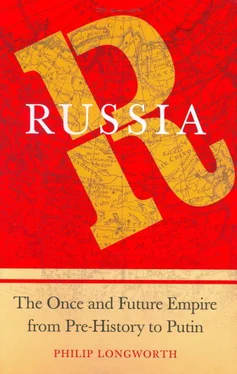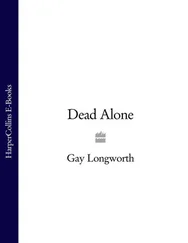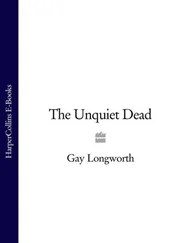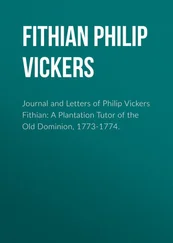3. E. Finch to Harrington, 2 June 1741 in Vernadsky et al., Source Book, vol. 2, pp. 381-2.
4. Nolde, La Formation de l’Empire Russe, vol. 2, pp. 20-23.
5. Ye. Anisimov, ‘The imperial heritage of Peter the Great in the foreign policy of his early successors’, in Ragsdale, Imperial Russian Foreign Policy, p. 21.
6. C. von Manstein [chief ADC to Marshal Münnich], supplement to his Memoirs of Russia (London, 1770), pp. 404-8, 391 (quotation), 295ff., 304, 109ff.
7. Ibid., p. 131.
8. Kahan, The Plow, The Hammer and the Knout, p. 15, table 1.11.
9. Manstein, Memoirs of Russia, p. 417.
10. An Authoritative Narrative of the Russian Expedition against the Turks by an Officer in the Russian Fleet [possibly Admiral Greig himself] (London, 1772), pp. 9-16; N. Saul, Russia and the Mediterranean 1797-1807 (Chicago, 1970), pp. 5-7.
11. Kahan, The Plow, The Hammer and the Knout, tables 3.17 and 3.18, pp. 92-3.
12. J. Hanway, An Historical Account of the British Trade over the Caspian Sea (2nd edn, 2 vols., London, 1754), vol. 1, pp. 9ff; for Elton’s journal, see pp. 11-27. Also Olcott, The Kazakhs, pp. 31—33; Donnelly, The Russian Conquest of Bashkiriya, pp. 105-6, 116, 158.
13. Hanway, British Trade over the Caspian Sea, vol. 1, pp. 281, 301, 308, 310-11, 349, 364-5; P. Longworth, ‘The role of Westerners in Russia’s penetration of Asia, I7th-18th century’, in Gy. Szvak, ed., The Place of Russia in Eurasia (Budapest, 2001).
14. Olcott, The Kazakhs, p. 33; Khodarkovsky, Russia’s Steppe Frontier, pp. 159, 165, 204.
15. Donnelly, The Russian Conquest of Bashkiriya, pp. 57ff. (the quoted passage is on p. 76; the casualty figures are on p. 138).
16. Ibid., p. 156.
17. P. Longworth, The Three Empresses (London, 1972), pp. 144-5.
18. J. Forsyth, ‘The Siberian native peoples before and after the Russian conquest’, in Wood, ed., The History of Siberia, pp. 69—89.
19. Coxe, Russian Discoveries, p. 330.
20. For the impact of smallpox on the population, Kahan, The Plow, The Hammer and the Knout, p. 14; Forsyth, A History of the Peoples of Siberia, pp. 189, 128, 95, 162 (the quotation is from Shelekhov); Coxe, Russian Discoveries, pp. 280-81.
21. Chappe d’ Auteroche, A Journey into Siberia (2nd edn, London, 1774), pp. 392-4.
22. A. Fisher, The Russian Annexation of the Crimea 1772—1783 (Cambridge, 1970), pp. 52ff.
23. P. Pallas, Travels through the Southern Provinces of the Russian Empire in I793 and 1792 (2 vols., London, 1802-3), vol. 2, p. 361.
24. P. Longworth, The Art of Victory (London, 1966), pp. 127-131; Nolde, La Formation de I’ Empire Russe, vol. 1. ch. 10, and A. Fisher, The Russian Annexation of the Crimea, pp. 137, 156.
25. Broxup, ed., The North Caucasus Barrier, p. 3.
26. Pallas, Travels, vol. 2, p. 343. Pallas carried out a thoroughgoing survey at the behest of P. A. Zubov, then chief administrator of the Crimea; E. Lazzerini, ‘The Crimea under Russian rule’, in Rywkin, ed., Russian Colonial Expansion, pp. 13-38; and J. Reuilly, Travels in the Crimea (London, 1807), pp. 63—84.
27. I. de Madariaga, Russia in the Age of Catherine the Great (London, 1982), pp. 361-4. On the establishment of Greek and Armenian colonies around the Sea of Azov, see Nolde, La Formation de l’Empire Russe, vol. 2, pp. 140-52; also M. Raeff, ‘Patterns of Russian imperial policy towards the nationalities’, in M. Raeff, ed., Political Ideas and Institutions in Imperial Russia (Boulder, 1994), p. 163.
28. For the whereabouts of German, Swiss, Greek, Bulgarian, Jewish and other settlers in southern Russia in the late eighteenth and particularly the early nineteenth century, see J. Pallot and D. Shaw, Landscape and Settlement in Romanov Russia (Oxford, 1990), p. 83, fig. 4 (map of settlement). On the development of the ports, Reuilly, Travels in the Crimea, pp. 82—4.
29. R. Bartlett, Human Capital: The Settlement of Foreigners in Russia 1762-1804 (Cambridge, 1972). Also Pallot and Shaw, Landscape and Settlement in Romanov Russia and the other sources already mentioned.
30. The English version of Catherine’s manifesto of 1763 inviting foreigners is reproduced in Bartlett, Human Capital, pp. 237—41, 264—7. The quoted pasages are from a handbill, ibid., pp. 243—4.
31. G. Reinbeck, Travels from St. Petersburg through Moscow, Grodno, Warsaw, Breslaw, etc. to Germany in the Year 1805 (London, 1807), p. 147.
32. Thaden, Russia’s Western Borderlands, p. 43.
33. An interesting discussion of these issues is provided by Kappeler, Russland als Vielvölikerreich, pp. 74-78.
34. Z. Kohut, ‘The Ukrainian elite in the eighteenth century and its integration into the Russian nobility’, in I. Banac and P. Bushkovich, The Nobility of Russia and Eastern Europe (New Haven, 1983), pp. 65-85.
35. Longworth, The Cossacks, pp. 224—34.
36. S. Lavrov’s archival research has also shown that at least one Russian governor-general — V. N. Tatishchev, Kirillov’s successor as governor of Orenburg — was bilingual in Russian and German.
37. Madariaga, Russia in the Age of Catherine the Great, pp. 323—34.
38. Kappeler, Russland als Vielvölkerreich, pp. I05f, 96, 116; J. Hartley, A Social History of the Russian Empire, 1630-1823 (London, 1999), p. 75.
39. Thaden, Russia’s Western Borderlands, pp. 33-4.
40. Raeff, ed., Political Ideas and Institutions; Madariaga, Russia in the Age of Catherine the Great, ch. 18.
41. Saul, Russia and the Mediterranean, pp. 42—4.
42. Coxe, Russian Discoveries, p. 306.
43. N.-G. Le Clerc, Histoire physique, morale, civile et politique de la Russie moderne (2 vols., Paris-Versailles, 1783-5), vol. 1, pp. 475-86 et seq.
44. R. Hellie, ‘The costs of Muscovite military defence and expansion’, in E. Lohr and M. Poe, eds., The Military and Society in Russia 1430-1917 (Leiden, 2002), pp. 41-66.
45. Kahan, The Plow, The Hammer and the Knout, table 1.1, p. 8.
10: THE ROMANTIC AGE OF EMPIRE
1. The estimates of land area are Liubavskii’s, in his Obzor istorii russkoi kolo-nizatsii, p. 539.
2. M. Atkin, Russia and Iran 1780-1828 (Minneapolis, 1980), pp. 73ff; General Tornau’s account in J. Baddeley, The Russian Conquest of the Caucasus (London, 1908), pp. 272-4; M. Atkin, ‘Russian expansion in the Caucasus to 1893’, in Rywkin, ed., Russian Colonial Expansion, pp. 139-87 (I have adapted his translation of Tsitsianov’s words).
3. Baddeley, The Russian Conquest of the Caucasus, p. 76.
4. Proclamation of 18 February 1808 issued by Count Bouxhoevden in [General Sprengtporten], Narrative of the Conquest of Finland by the Russians in the Years 1808-g, ed. General Monteith (London, 1854), pp. 225-7.
5. The quoted passage is in Vernadsky et al., Source Book, vol. 2, p. 490. See also Kappeler, Russland als Vielvölkerreich, pp. 87-8.
6. See G. Jewsbury, The Russian Annexation of Bessarabia 1774—1828 (Boulder, 1976), pp. 26-66.
7. The size of the Grande Armée is the estimate of C. von Clausewitz, The Campaign of 1812 in Russia (London, 1843). For the campaign itself, aside from Clausewitz see L. Tolstoy’s War and Peace. Tolstoy based his account of operations on the archive of the Russian quartermaster-general, his uncle.
Читать дальше





![Stephan Orth - Behind Putin's Curtain - Friendships and Misadventures Inside Russia [aka Couchsurfing in Russia]](/books/415210/stephan-orth-behind-putin-s-curtain-friendships-a-thumb.webp)





